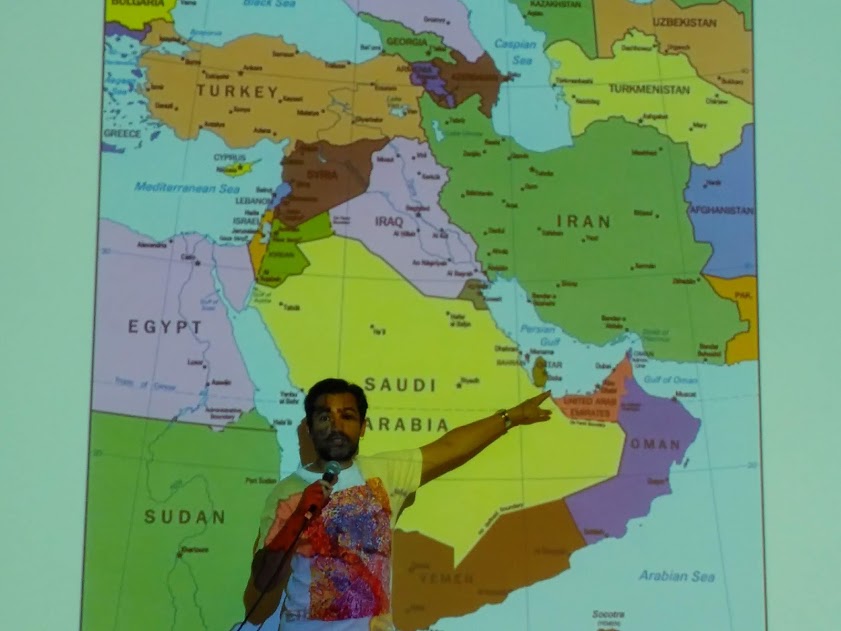
Earlier this month author David Wearing spoke in London on Britain’s military and economic support for Saudi Arabia, and the UK connection with the war in Yemen.
Ian Pocock from London CAAT writes:
London CAAT were proud to host David Wearing as he gave a fascinating and insightful talk on Anglo Arabian relations to coincide with his new book. He covered the long history of the intertwined relations between the UK and the six nations of the Gulf Cooperation Council (Saudi Arabia, Qatar, Kuwait, Bahrain, Oman and the United Arab Emirates), the weapons/military assistance they provide to these countries and the consequences of this assistance.
He began with an outline of the UK’s relationship with these countries; covering how their monarchical rules were set up with the help of the UK, the UK’s withdrawal from the region in 1968 (they left their military bases in 1971) and how extensive UK involvement in the region remained after this, with UK advisers at all levels of bureaucracy, military and intelligence, thus helping to sustain monarchical rule.
He then proceeded to the meat of the issue for activists, how these relationships hinge on arms sales. He said UK arms exports help the UK to remain a global military power and that they are more about strategic value than commercial profit. Revenues from these exports help sustain the domestic arms industry. While the value of arms exports to the rest of the world have gone down, exports to the GCC have risen exponentially and are now 50% of exports. The UK is one of three of main countries exporting to the GCC, the others being the US and France.
The arms deals struck with these countries don’t just cover the weapons, they include maintenance, logistics, base rights (for example Bahrain paid for the UK military base stationed in their country) and training for their security services (UK police trained the Bahraini security service who then went onto violently oppress protesters during the Arab Spring). All the while maintaining the Bahraini regime was reforming – this claim can be disproved by the many Human Rights Watch and Amnesty reports on the oppression there.
David also outlined the devastating situation in Yemen, where 8 million of the 20 million people living there are on the brink of starvation, all due to the blockade of Yemen by the Saudi-led coalition. He outlined the coalition’s use of ‘double-tap’ strikes, i.e. following up an initial missile strike with another one that targets the first responders. The most heinous thing he outlined was that these strikes were carried out with British-made jets flown by British-trained pilots using British missiles that are then maintained by the British. This was a stark reminder of the UK’s complicity in these strikes. It is clear that the UK regards our economic comfort more important than the lives of Yemeni citizens. He touched upon the lack of knowledge the UK public have about the situation – only 49% know we are at war with Yemen, a stark indication that the media have not done their job.
The well-attended talk ended with a lively discussion, with the key question from the audience being what can we do about this horrendous situation. David said write to your MP about them (you can do that here), target the arms companies responsible for the weapons sold and support CAAT’s judicial review of arms sales to Saudi Arabia. You can also get involved with London CAAT as our main focus at the moment is these sales – we meet the third Tuesday of the month at 6.30pm in the CAAT office.

